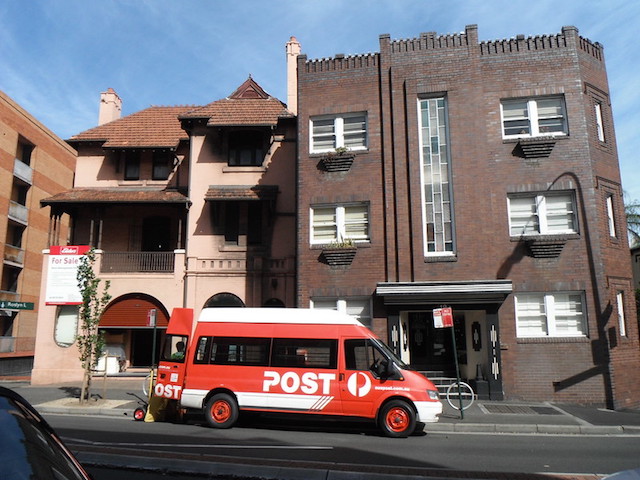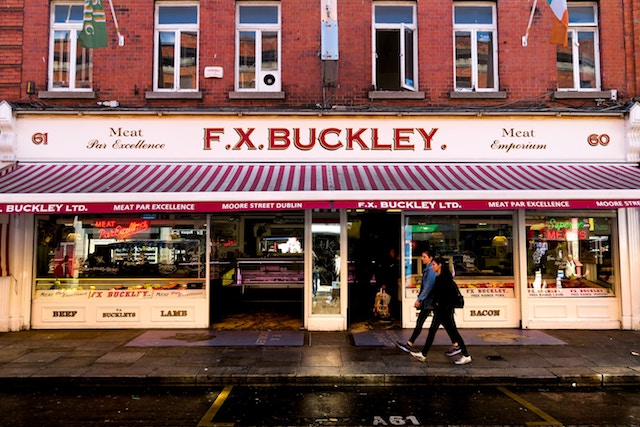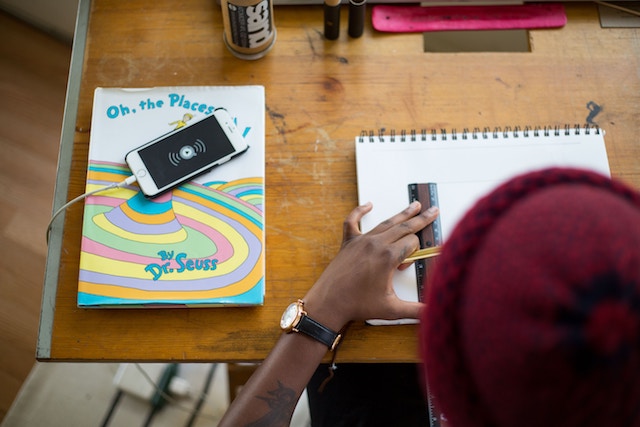Unlock the Magic in Your Story Now
Get the Free 20 questions to Ask Before Launching Your Idea workbook when you sign up for occasional updates.
Get the Free 20 questions to Ask Before Launching Your Idea workbook when you sign up for occasional updates.
Articles filed in: Strategy
Giving Attention Vs. Getting Attention
filed in Meaningful Work, Strategy, Success

The more people have to attend to, the harder it is to get their attention.
Attention is a precious resource. And as with any resource, scarcity creates value.
Our culture has taught us that those who can capture the most attention win—never more so than in the digital age. So, we devote a considerable amount of time and effort working out how to mine other people’s attention—often adding to the noise.
What if instead of showing up to get attention, we showed up to give it, without expectation? Imagine the resources we could build if we spent the majority of our time attending to how we could help instead of trying to be seen.
Image by Daniel Funes Fuentes
Empathy Creates Value
filed in Meaningful Work, Strategy, Success

A restaurant host has one job to do—meet and greet diners and show them to their table.
It sounds easy enough, but the difference between a good host and a great host is underrated because where people are seated directly impacts their experience. Seating arrangements can influence how long diners spend at a venue, how much they spend, and whether they come back.
One Saturday, at a cafe near where I live, a woman arrives alone with a Moleskine notebook under her arm. She wants coffee and a small table in a quiet corner.
The young couple with two small children need a spot where they can spread out and relax over pancakes without feeling like they’re disturbing other diners.
Even though the cafe is empty, the host seats both parties at the same big communal table in the middle of the dining room. They smile politely and look disappointed, but don’t ask to be moved. Sadly neither group gets the experience they want that day. The young parents snap at their kids in an attempt to keep them quiet. The woman with the notebook puts it away within minutes, finishes her coffee and leaves.
In his quest for efficiency, the host forgot that the purpose of the cafe isn’t just to serve food and drinks—it’s also to have the empathy to discern how to treat different customers differently.
We create value and deliver joy when we make the people we serve feel like they matter. What better goal can we have for the work we have the privilege to do?
Image by Petr Sevcovic
Powering The Future

The tagline on the side of the red Australia Post van reads; ‘Powering online shopping.’
It stops me in my tracks. I think about the people who led this business twenty or even ten years ago. They would have had a hard time envisioning this as their new business strategy, never mind the world’s new reality.
While parcel revenues and online transactions are increasing, letter volumes keep dropping, which puts pressure on once thriving local post offices. Few people would have foreseen this two decades ago.
Like us, the leaders of this business must plan for the future without depending on it, by it’s getting closest to the people they want to serve.
Image by Ruby
Reclaiming Old Marketing
filed in Marketing, Strategy, Success
 The fastest way to shut down a conversation is to tell someone you’re ‘in marketing’.
The fastest way to shut down a conversation is to tell someone you’re ‘in marketing’.
Why is that?
Over the past six decades, the perception of marketing has changed dramatically. Marketing has gone from being a helpful conversation to being perceived as sleight of hand tactics that trick people into making decisions they later regret. That’s not the kind of marketing I grew up around. And it’s not the kind of marketing I want to practice or see in the world.
The kind of marketing I witnessed growing up was the helpful conversations my mother had with Buckley’s butchers about the best cuts of meat to buy for the meal she wanted to cook, within her budget. Their marketing worked even when the supermarket chains arrived because the Buckley’s had earned people’s trust over years of helpful conversations.
The promise of ‘new marketing’ was that we could reach more people, faster and cheaper. What wasn’t as clearly understood was what might be lost by going for those quick wins.
It turns out that the tools and tactics of new marketing aren’t a shortcut. The tried, trusted and true methods of old marketing help us to maintain our integrity and get to where we want to go.
Image by Denise Jans
The One Thing
filed in Meaningful Work, Strategy, Success

A novel is written one word, one sentence at a time. A marathon completed in strides, not miles. Every day we stand on the shoulders of the effort we made the one before.
We don’t make progress, we choose it.
What’s the one thing you could do today that would make a difference to your work?
What’s the one you could stop doing today that would have an impact on your progress?
What’s the one thing you need to learn to get you closer to your goal?
What’s the one thing you need to unlearn to change your perspective about what’s possible?
What one thing are you willing to do today in service of tomorrow?
Image by CJ Dayrit
Listening To Lead
filed in Story Skills, Strategy

The promise of the digital age was the ability to more cheaply and rapidly raise awareness of our value, our message, or our cause. Digital media levelled the playing field and gave all of us the chance to spread our ideas.
In some cases, the desire to quickly spread ideas has led to the misbelief that to control the message, we must manipulate the story. But when we prioritise being heard, we stop listening to the people we serve. We quickly lose ground when we put self-interest before service.
The opportunity to harness the tools available to all of us to hear, not only to be heard is open to all of us. We get to choose how we take advantage of it.
Image by Dries Augustyns
Consistent, Persistent And Patient
filed in Marketing, Story Skills, Strategy

The slim woman dressed in activewear, in line at the cafe next to the gym, orders a black coffee. As she’s handing over her card when the barista asks her the question he’s asked every single customer who ordered a takeaway coffee that morning.
‘Would you like a glazed doughnut for just $2 to go with your drink?’
‘No! Thanks,’ the woman laughs and rolls her eyes.
The barista shrugs before moving onto the next customer.
Of course, if the barista offers a doughnut to everyone, some customers will buy one. But what does that sale cost the business in eroded trust over time?
We’ve come to believe that the secret to being a successful communicator is to be consistent and persistent.
But it isn’t just the person who shows up to tell their story most often who wins. It’s the person who has the patience and empathy to understand the story they tell must serve the people they want to matter to.
Image by Nathan Shurr
The Best Laid Plans
filed in Meaningful Work, Strategy, Success

This day ten years ago you probably had plans in place for the year ahead. Maybe you achieved some of those goals in 2010. But I’m guessing that you could never have planned for some of the unexpected events, opportunities, twists and turns of the decade you’ve just lived.
It turns out that it’s harder to predict the future than we think because we underestimate how much we, and the world will change over time. As psychologist, Dan Gilbert says;
‘Human beings are works in progress that mistakenly think they’re finished. The person you are right now is as transient, as fleeting and as temporary as all the people you’ve ever been. The one constant in our life is change.’
Ten years ago, I had just started blogging. I had no plans to write a book. I couldn’t have imagined building an online community, the joy of teaching story skills to thousands of people or speaking at TEDx. None of those things happened because I had a five year or a ten-year plan. They happened one blog post, one idea, one conversation at a time. Long-term goals, dreams and intentions are worthy, but they only eventuate because of our short-term actions.
Here’s to the next decade of showing up to do work we’re proud of and building a world that’s better for our being here.
Image by Tamarcus Brown
The Advantage Of Not Knowing For Sure

Success is as unpredictable as failure. Nobody knows for sure what will be a hit or a miss. Every runaway success is only obvious with hindsight. And yet we expend so much of our creative energy trying to be successful to our detriment.
When you liberate yourself from the pressure of having to win, you’re free to try things that haven’t been done before. You can permit yourself to develop your unique perspective—share and alternative worldview. Walk an untrodden path.
It isn’t just fear of failure that stifles creativity and innovation—it’s the pursuit of the ‘sure thing’ that closes us off to the possibilities. If we always knew exactly where we’d land we would never discover how high or how far we might have gone.
Image by Eugene Lim
The Unexpected

Think about an instance of great service you experienced in the past week. I can guarantee what made it special was how it was delivered, not what was delivered.
Contrary to what we often believe, people want more than what was expected.
We consistently underrate, undervalue, and underutilise our humanity.
And we always have the opportunity to do the unexpected.
Image by Kate Townsend